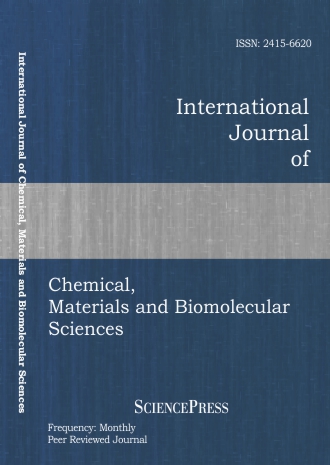
Scholarly
Volume:7, Issue: 9, 2013 Page No: 671 - 674
International Journal of Chemical, Materials and Biomolecular Sciences
ISSN: 2415-6620
1667 Downloads
Production of Biodiesel from Different Edible Oils
Different vegetable oil based biodiesel (FAMES) were prepared by alkaline transesterification using refined oils as well as waste frying oil (WFO). Methanol and sodium hydroxide are used as catalyst under similar reaction conditions. To ensure the quality of biodiesel produced, a series of different ASTM Standard tests were carried out. In this context, various testwere done including viscosity, carbon residue, specific gravity, corrosion test, flash point, cloud point and pour point. Results revealed that characteristics of biodiesel depend on the feedstock and it is far better than petroleum diesel.
Keywords:
References:
[1] B. K. Barnwal and M. P. Sharma, "Prospects of biodiesel production from vegetable oils in India," Renewable and Sustainable Energy Reviews, vol. 9, pp. 363-378, 2005.